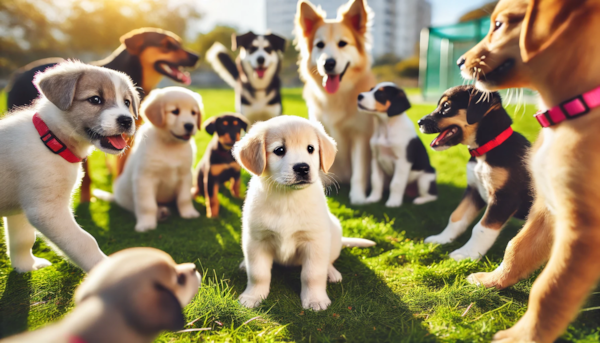
Puppy socialization is more than just play dates; it’s a comprehensive process that introduces your young dog to the variety of experiences they will encounter in life. Proper socialization can prevent fear and aggression issues, making daily interactions enjoyable and safe. This guide will walk you through the essential steps to effectively socialize your puppy.
Table of Contents
Understanding Puppy Socialization
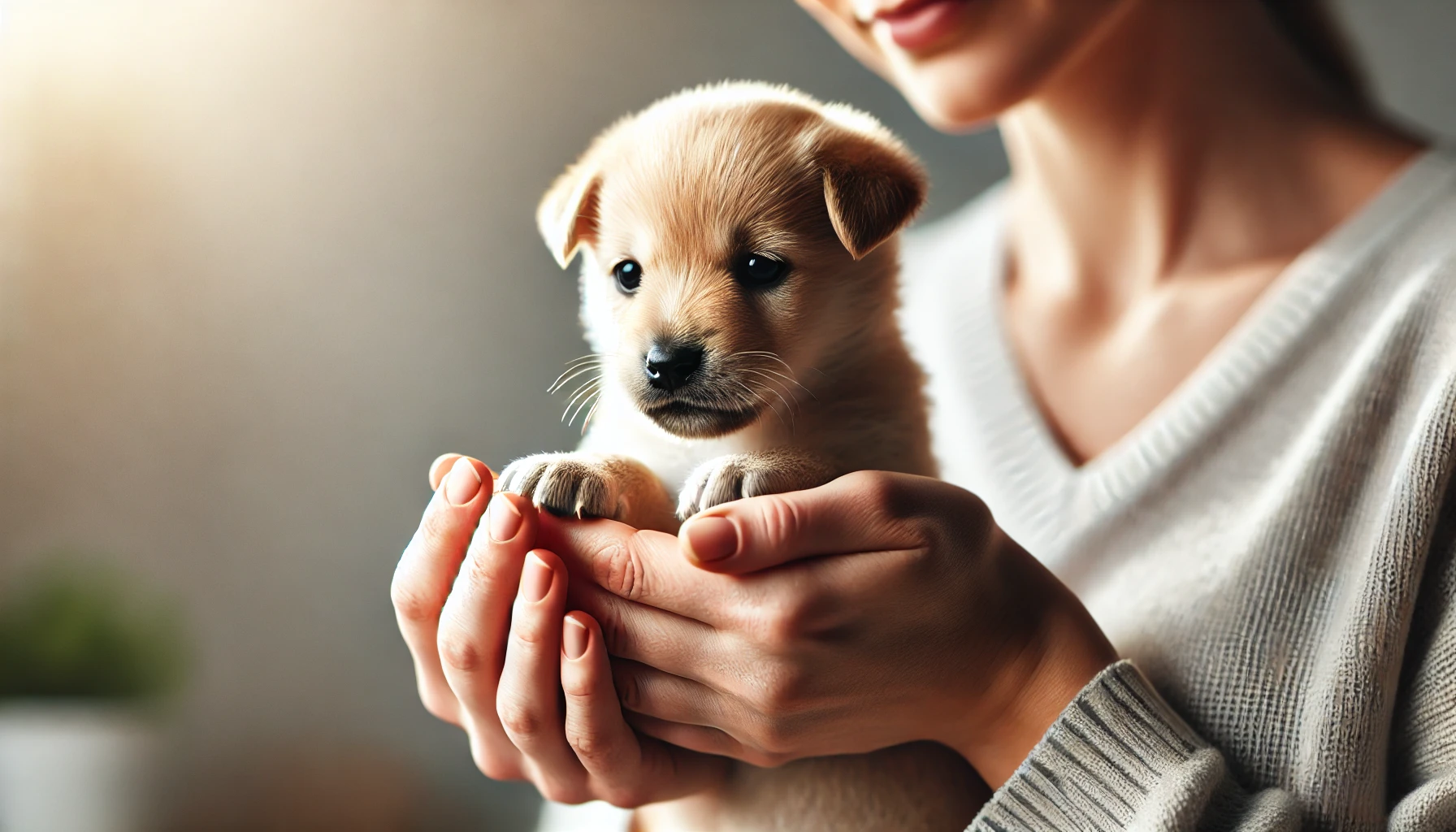
Socializing your puppy is a critical component of their development, akin to sending a child to school. It's not just about playing with other dogs, it’s also about preparing your puppy to interact confidently with the world around them.
The Importance of Socialization for Puppies
Proper socialization during the puppy phase helps prevent behavioral issues such as fear, aggression, and anxiety. It lays a foundation for a well-adjusted adult dog capable of handling new experiences and challenges with ease. Socialized puppies are typically happier, more outgoing, and more predictable, which makes for safer and more enjoyable interactions with other animals and people.
Ideal Age to Start Socializing Your Puppy
The prime time to start socializing your puppy is between 3 and 14 weeks of age. This period is when puppies are most receptive to new experiences. However, it's crucial to balance early socialization with health safety. Puppies should start socializing only after they've begun their vaccination schedule. Before they're fully vaccinated, it's safe to expose them to controlled environments where other animals are known to be healthy and vaccinated.
Incorporating the leash and harness early in your puppy’s life is also essential. Gradual introduction during play and in the comfort of your home can make these tools familiar and non-threatening. By the time they are ready to explore the outdoors more freely, they’ll view their leash and harness as positive, enabling tools rather than restrictions.
RELATED: Leash Training Guide
Preparing for Socialization
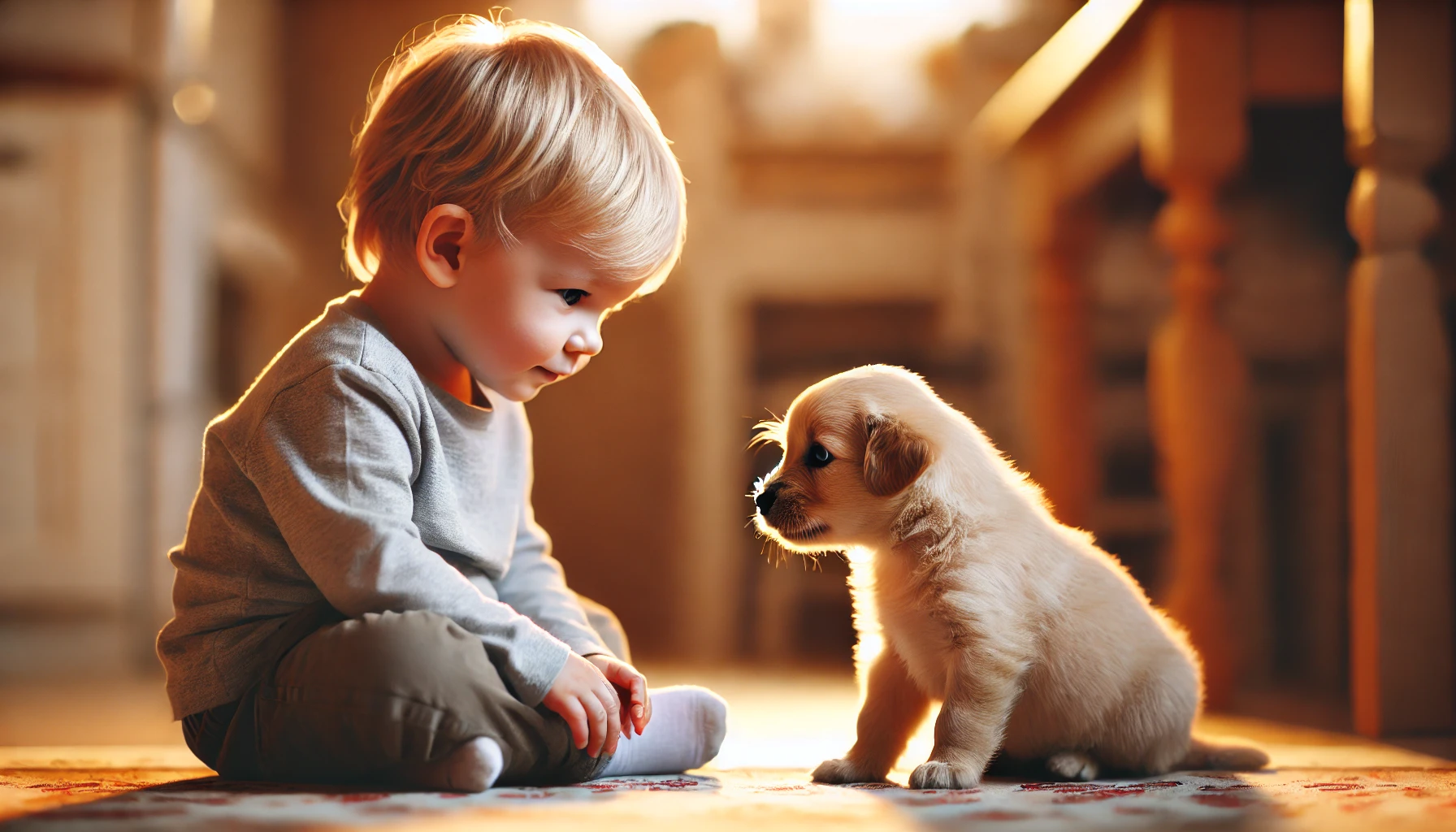
Before you begin the socialization process, it’s crucial to have a plan and prepare the right environment for your puppy. Proper preparation ensures that the socialization process is effective and enjoyable for both you and your puppy.
What You Need Before You Start
Ensuring your puppy’s health is the first step. Complete their vaccination schedule to protect them from common canine diseases they might encounter in public places. Additionally, having a comfortable, well-fitting leash and harness is important, as these will be your primary tools for control and safety during outdoor adventures.
Gather a variety of treats to use as positive reinforcements during social interactions. Choose treats that your puppy is especially fond of to make training sessions more compelling.
Setting Realistic Goals
Setting achievable goals is key to a successful socialization plan. Start with simple objectives, like:
- Having your puppy calmly meet one new person a week.
- Introducing them to a new type of environment gradually, such as a quiet park or a friend's backyard.
- Exposing them to common household noises using recordings or during normal routines.
Each goal should be tailored to your puppy’s current comfort level, gradually pushing their boundaries without overwhelming them.
Proper preparation not only smooths the way for initial social experiences but also builds a framework that supports more complex interactions as your puppy grows. With everything in place, you’re ready to start socializing your puppy in a safe and controlled manner.
Safe and Effective Socialization Practices
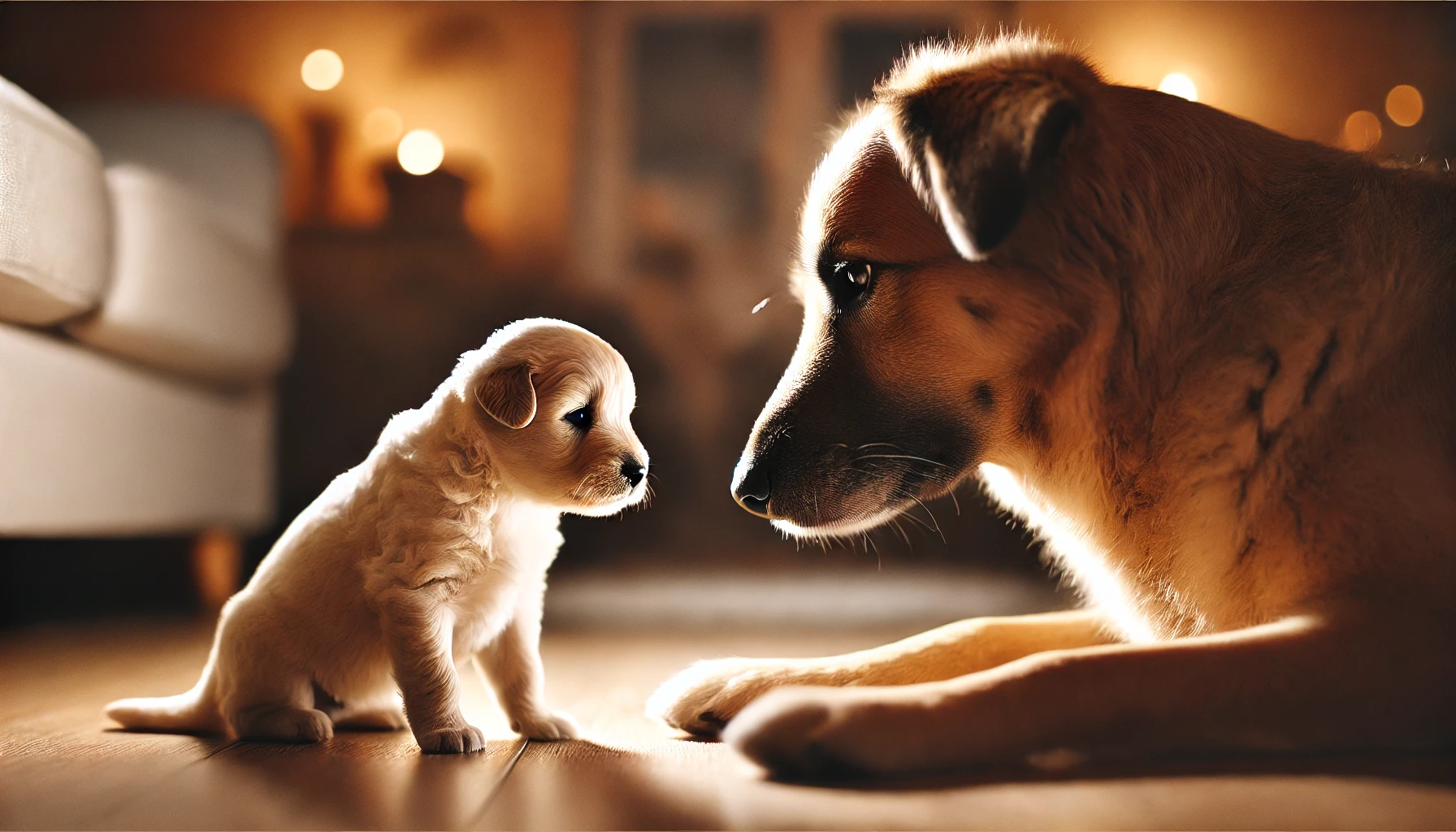
Now that you've prepared, it's time to put those plans into action. Socializing your puppy safely and effectively involves gradually introducing them to a variety of experiences, ensuring each new encounter is positive.
Introducing Your Puppy to New People
Begin by exposing your puppy to a diverse range of people, including children, adults, and the elderly, in controlled environments. Keep initial meetings short and sweet. Let your puppy approach new people in their own time, and make sure everyone knows how to interact with your puppy gently. Use treats to reward your puppy for calm and friendly behavior.
Safe Ways to Meet Other Dogs and Animals
Your puppy should only meet fully vaccinated and well-behaved dogs initially. Small, controlled playdates with one or two other dogs are a great start. Observe your puppy’s body language to ensure they are comfortable and not overwhelmed. Always intervene if play becomes too rough or if your puppy seems distressed.
Exposing Your Puppy to Different Environments and Sounds
Gradually introduce your puppy to various environments such as parks, urban streets, and pet-friendly stores. Start with quieter times of day to avoid overwhelming them and gradually build up to busier times as they become more confident. Similarly, expose your puppy to different sounds at home like doorbells, vacuum cleaners, and TVs at a low volume, slowly increasing the volume as they get accustomed.
These practices are crucial for helping your puppy become well-adjusted to a variety of life situations. By controlling their early experiences and ensuring they are positive, you're helping to prevent fear and anxiety from developing.
RELATED: How to Potty Train a Puppy
Handling Different Socialization Scenarios
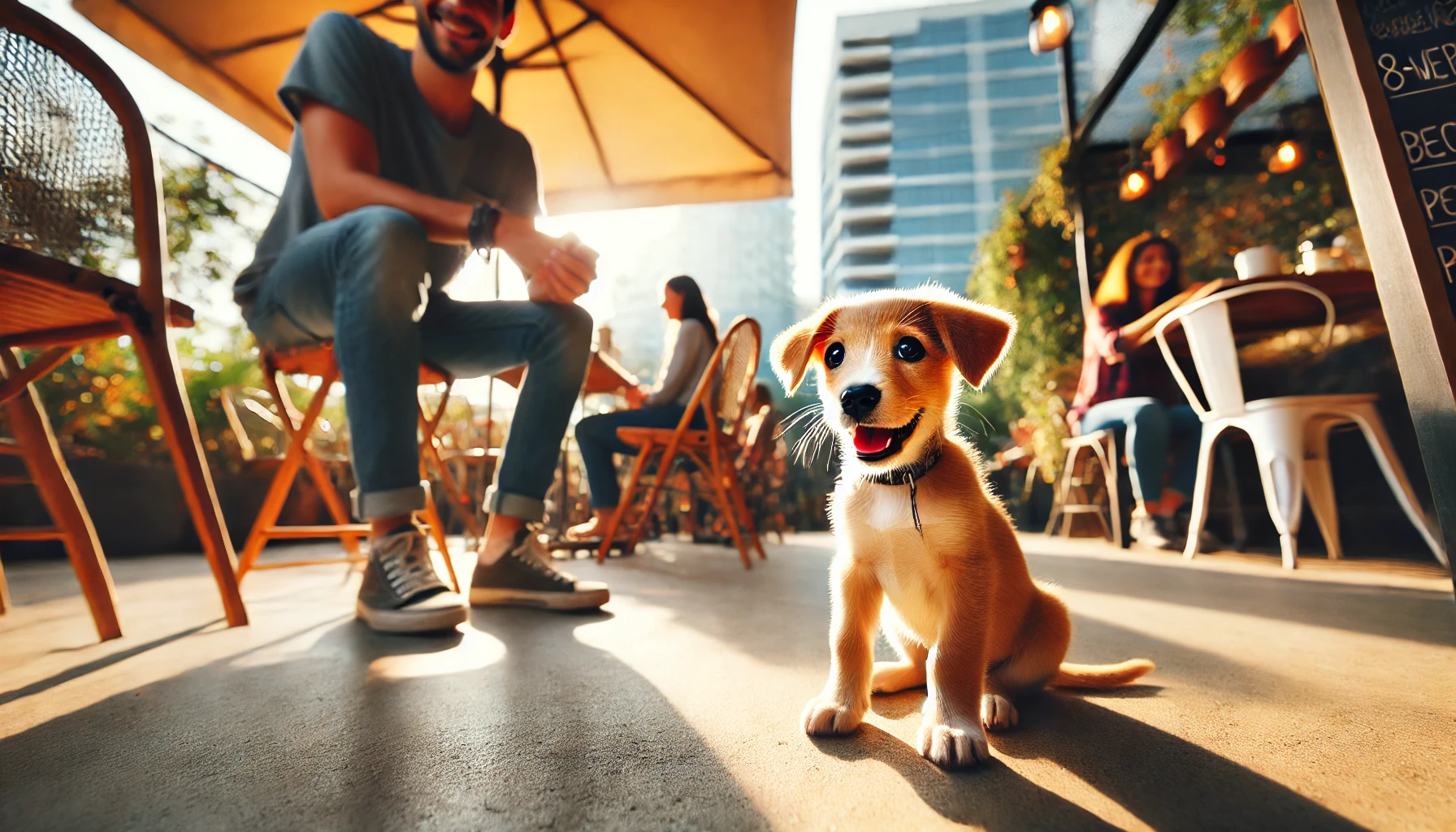
Puppy socialization involves a variety of scenarios, each presenting unique challenges and opportunities. By understanding how to navigate these different environments, you can help your puppy become more adaptable and confident.
At Home
Home is the first and most controlled environment for your puppy's socialization. Introduce your puppy to different rooms, various household noises, and any equipment they must get used to, like crates or baby gates. Invite guests over regularly to help your puppy get used to visitors. Make sure your puppy has a safe space to retreat to if they feel overwhelmed.
In Public Places
Once your puppy is comfortable at home and vaccinated, start taking them to public places. Choose quiet times to visit parks or pet-friendly stores so your puppy can explore without the stress of a crowd. Keep interactions brief and always watch for signs of stress or fear. Gradually increase the complexity of these outings as your puppy grows more comfortable.
During Vet Visits
Vet visits can be stressful for puppies. To make these experiences more positive, visit the vet for social calls where no treatment is given. Let the staff give your puppy treats and gentle handling. This can help associate vet visits with positive outcomes, easing anxiety over time.
Each of these scenarios requires a slightly different approach, but the core principle remains the same: ensure each new experience is positive and manageable for your puppy. This strategy helps build a solid foundation of trust and confidence in your puppy.
Common Challenges and Solutions in Puppy Socialization
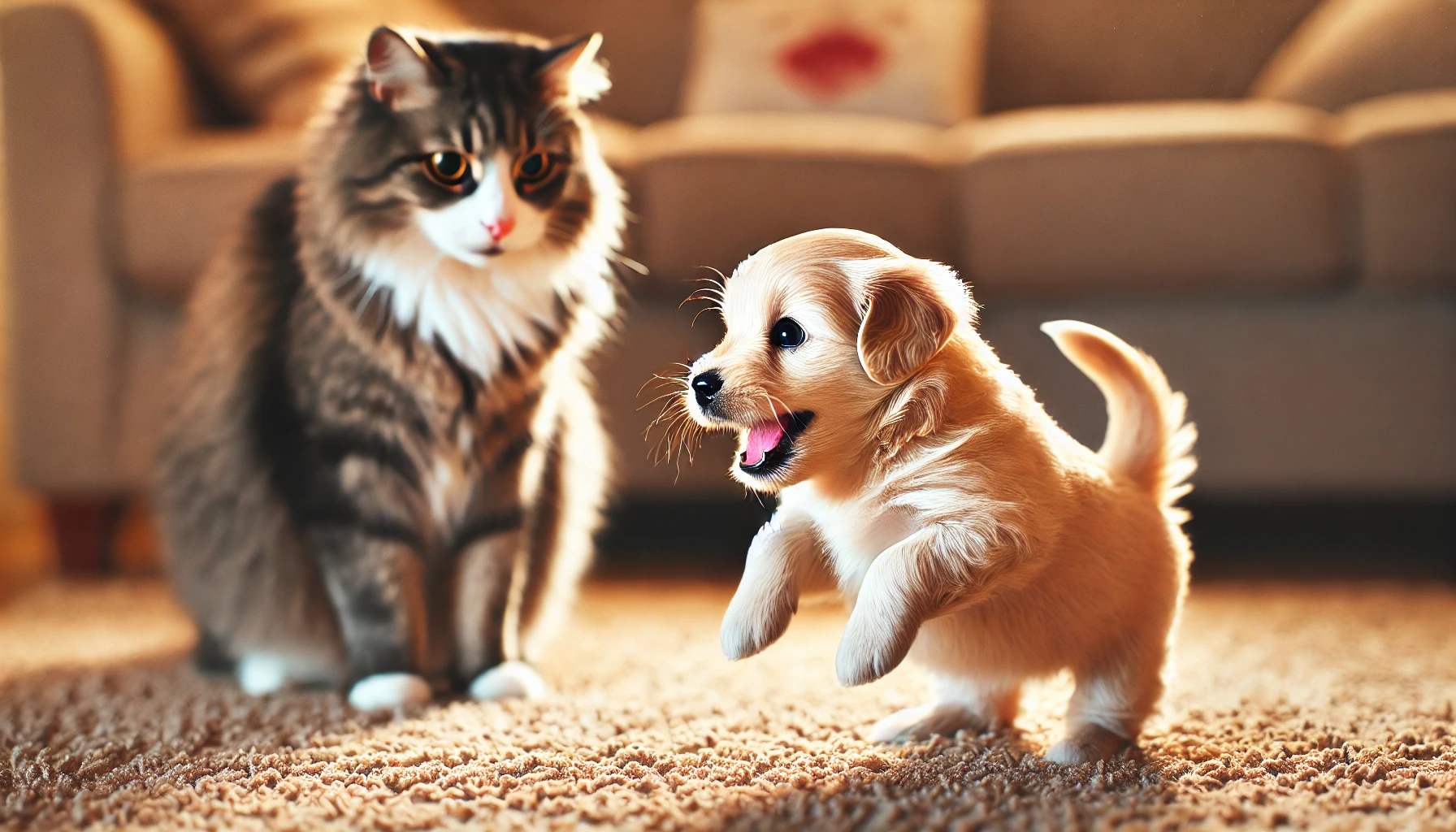
While socializing your puppy, you may encounter some common challenges. Understanding how to address these effectively can help keep the socialization process on track.
Overcoming Fear and Shyness
Some puppies may naturally be more timid and may feel overwhelmed by new experiences. It’s important to recognize signs of fear, such as cowering, tucking the tail, or trying to escape. To help a fearful puppy:
- Proceed at a pace they are comfortable with, slowly introducing new people, animals, and environments.
- Use treats and praise to create positive associations with new experiences.
- Avoid forcing your puppy into situations where they feel scared, as this can exacerbate their fear.
Dealing with Overexcitement
On the other end of the spectrum, some puppies might get overexcited in new situations, which can lead to jumping on people or becoming uncontrollable. To manage this:
- Teach basic commands like "sit" and "stay" early on, using these during social interactions to manage their behavior.
- Provide plenty of exercise before social encounters to help burn off some of their excess energy.
- Use a short leash during meetings to keep them close and under control, gradually giving more freedom as they learn to calm down.
Maintaining Consistency
Consistency in how you handle different situations is crucial for helping your puppy learn acceptable behaviors. Whether they are fearful or overexcited, maintaining a calm and consistent approach helps them understand what is expected of them.
Maintaining Socialization Efforts
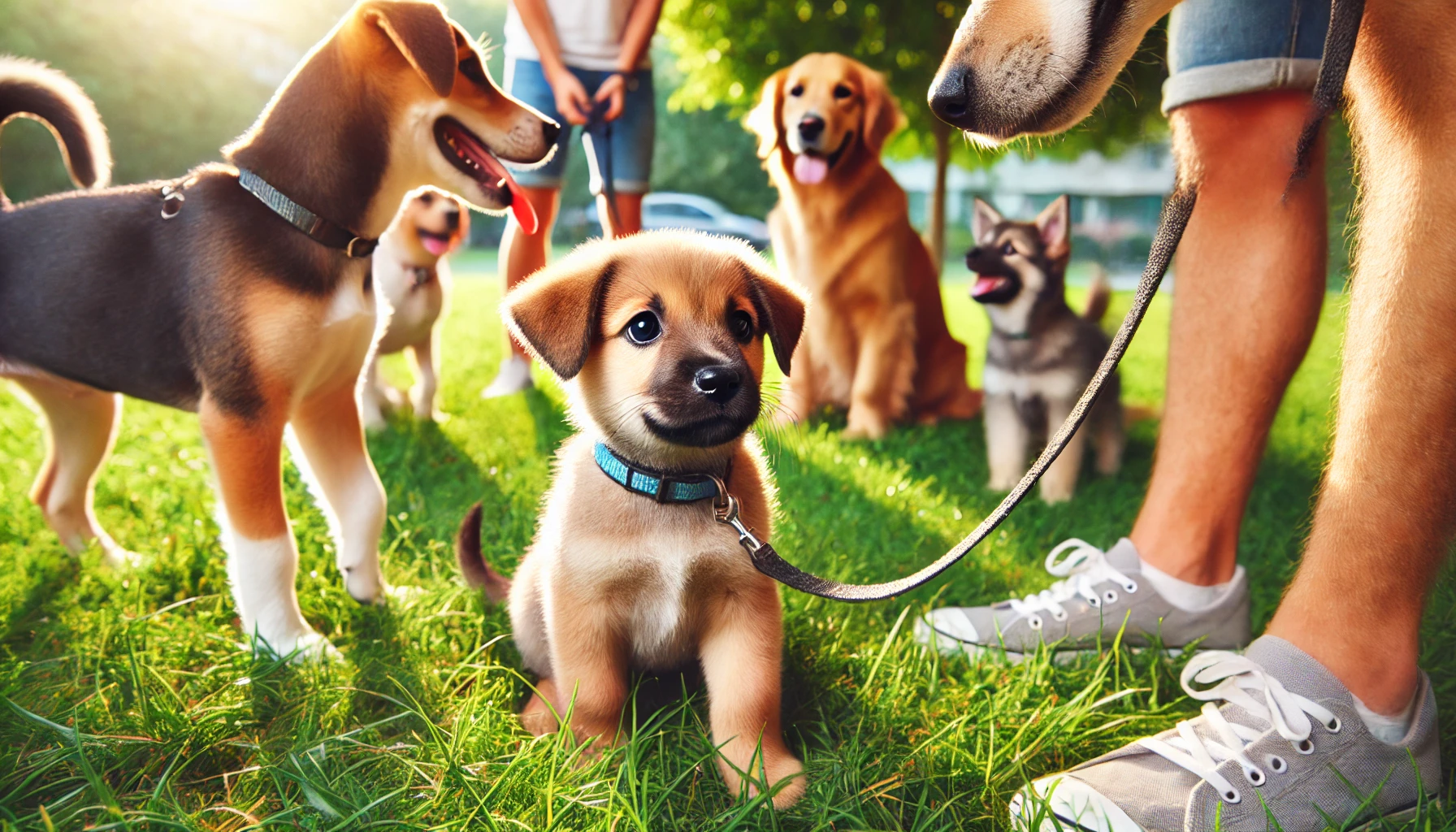
As your puppy grows, it's important to continue socialization efforts to reinforce early lessons and introduce more complex situations. Ongoing socialization helps ensure that your puppy remains adaptable and confident throughout their life.
How to Continue Socialization as Your Puppy Grows
Even after your puppy becomes an adult, keep exposing them to new people, animals, environments, and situations. Regular visits to dog parks, new hiking trails, or different urban areas can provide varied experiences that reinforce social skills:
- Participate in group training classes or dog sports like agility or obedience trials, which offer socialization opportunities while also strengthening your bond and providing mental stimulation.
- Arrange playdates with dogs that have compatible play styles and temperaments.
- Continue to visit pet-friendly stores, cafes, and events to expose your puppy to different types of crowds and noises.
Signs That Your Socialization Efforts Are Working
You’ll know your ongoing socialization efforts are effective if your dog:
- Appears relaxed and happy in a variety of settings.
- Displays curiosity rather than fear when encountering new experiences.
- Maintains good behavior when meeting new people and animals, without becoming overly excited or shy.
Wrapping It Up
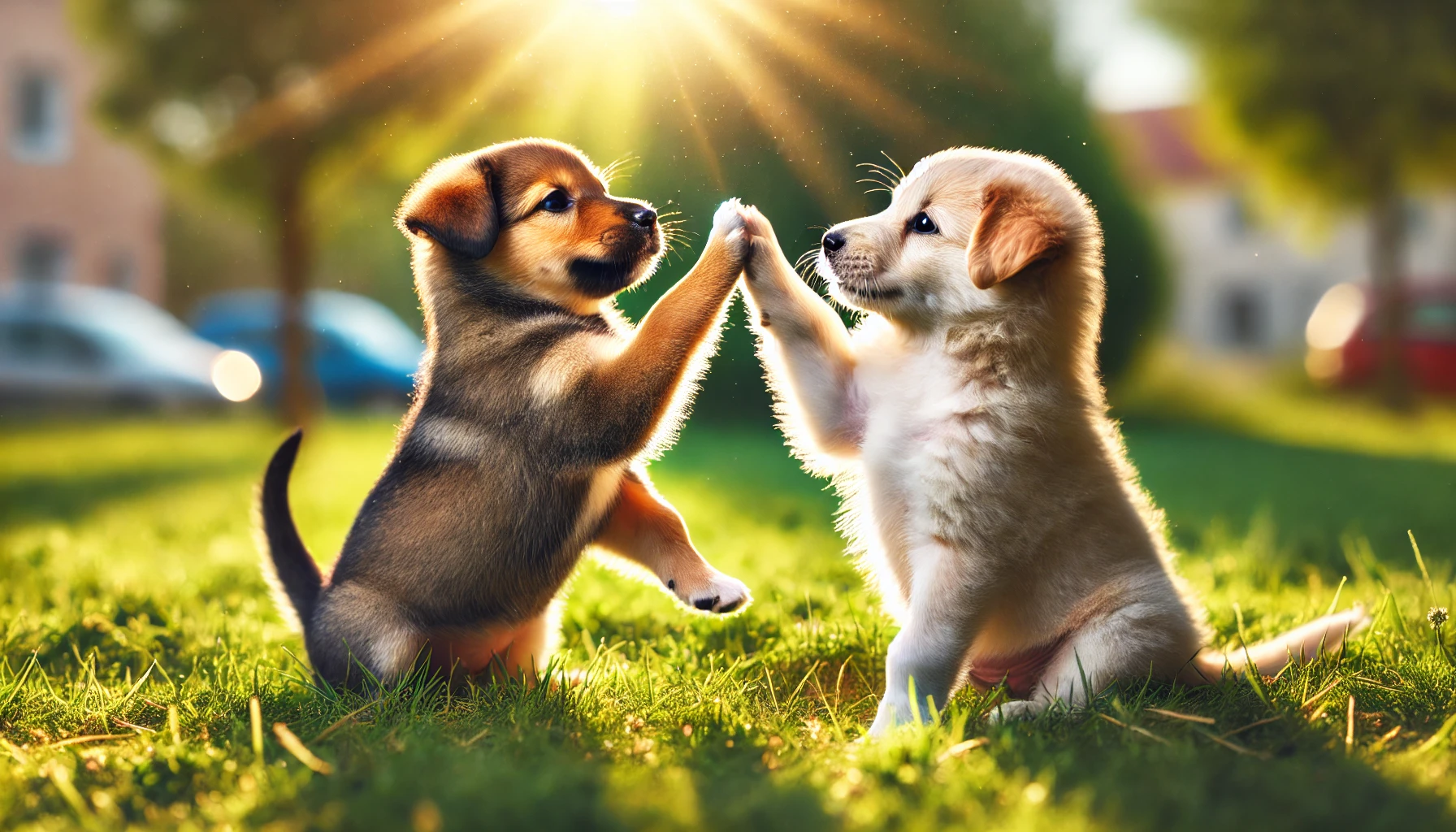
Congratulations on taking proactive steps to socialize your puppy! Socialization is a crucial part of your puppy's early development that sets the stage for their future behavior and temperament. By introducing your puppy to a variety of experiences in a controlled and positive way, you're helping them grow into a well-adjusted, confident adult dog.
Recap of Key Points
- Start socializing your puppy early, ideally between 3 and 14 weeks, but only after they have begun their vaccinations.
- Use a calm, positive approach to introduce new people, animals, environments, and situations.
- Continue socialization efforts throughout your puppy’s life to maintain their sociability and adaptability.
Here's to many joyful and enriching experiences with your well-socialized puppy!
Scroll down to see FAQs about puppy socialization.
What To Read Next
Puppy Training Guide for New Owners
Puppy Leash Training Guide
Frequently Asked Questions
How early can I start socializing my puppy? You can start socializing your puppy as early as 3 to 4 weeks within the home environment and start introducing them more broadly after their first round of vaccinations, around 7 to 8 weeks of age.
What if my puppy seems scared during socialization? If your puppy seems excessively fearful, slow down the pace of new introductions and focus on making each new experience as positive as possible with treats and praise. If fear persists, consider consulting a professional dog trainer or behaviorist.
Can socialization help with aggression in puppies? Yes, proper socialization can help prevent aggression by teaching puppies how to react appropriately to various situations and by reducing fear and anxiety, which are common triggers for aggressive behaviors.
Is there such a thing as too much socialization? While socialization is critical, it's important to ensure that experiences are not overwhelming for your puppy. Too many new experiences too quickly can lead to stress and anxiety. It's vital to monitor your puppy’s behavior and adjust the pace accordingly.



